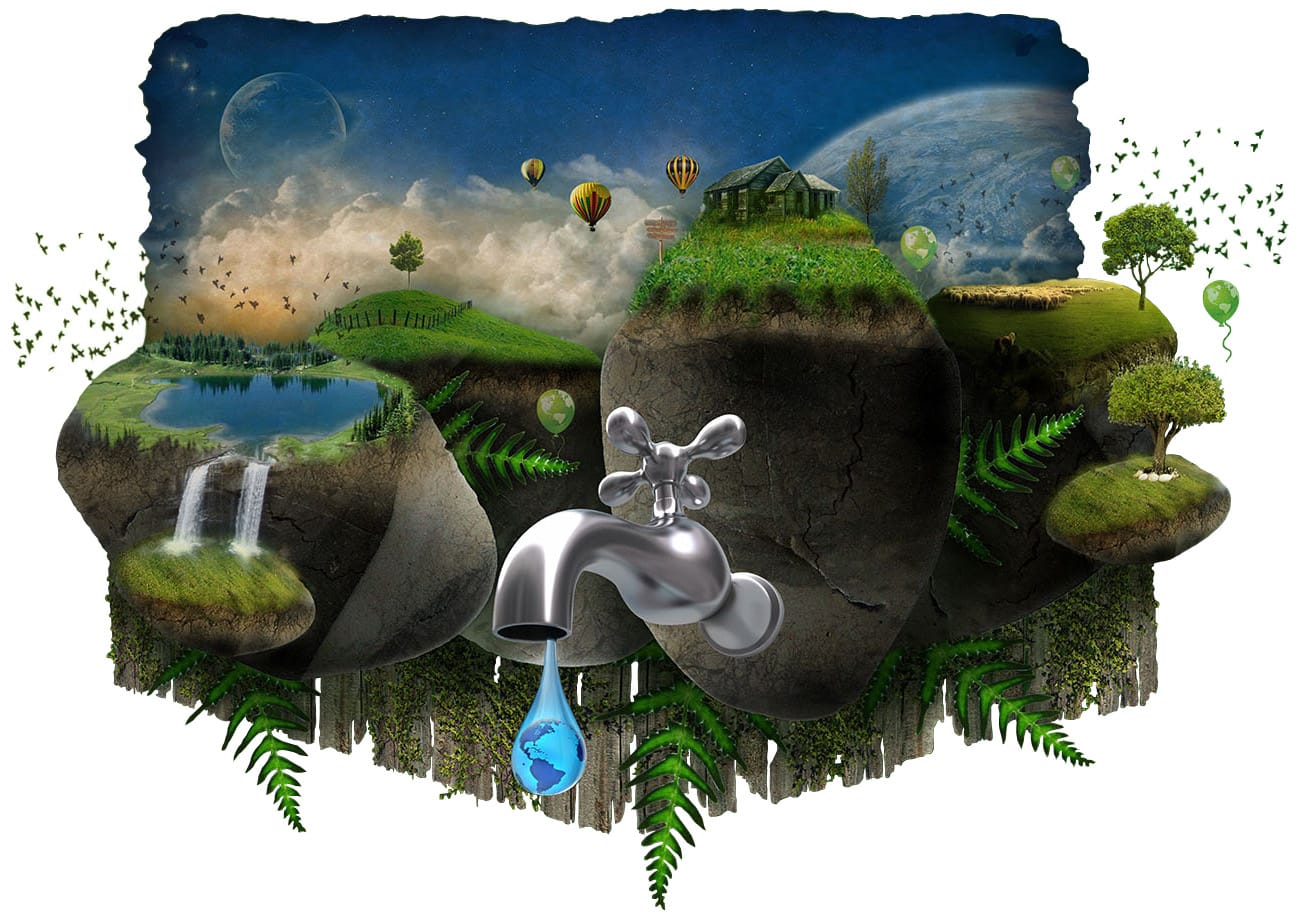
European Green Agenda (Green Deal) is a 2019 strategy that should make Europe the first “climate neutral” continent by 2050. To achieve this goal, the signatory states must gradually work towards introducing clean energy to start all economic processes. This would reduce the negative impact of using fossil fuels in the economy– production and consumption, taxation and social benefits.
The Green Agenda emphasizes the importance of protecting and restoring natural ecosystems and sustainable use of resources.
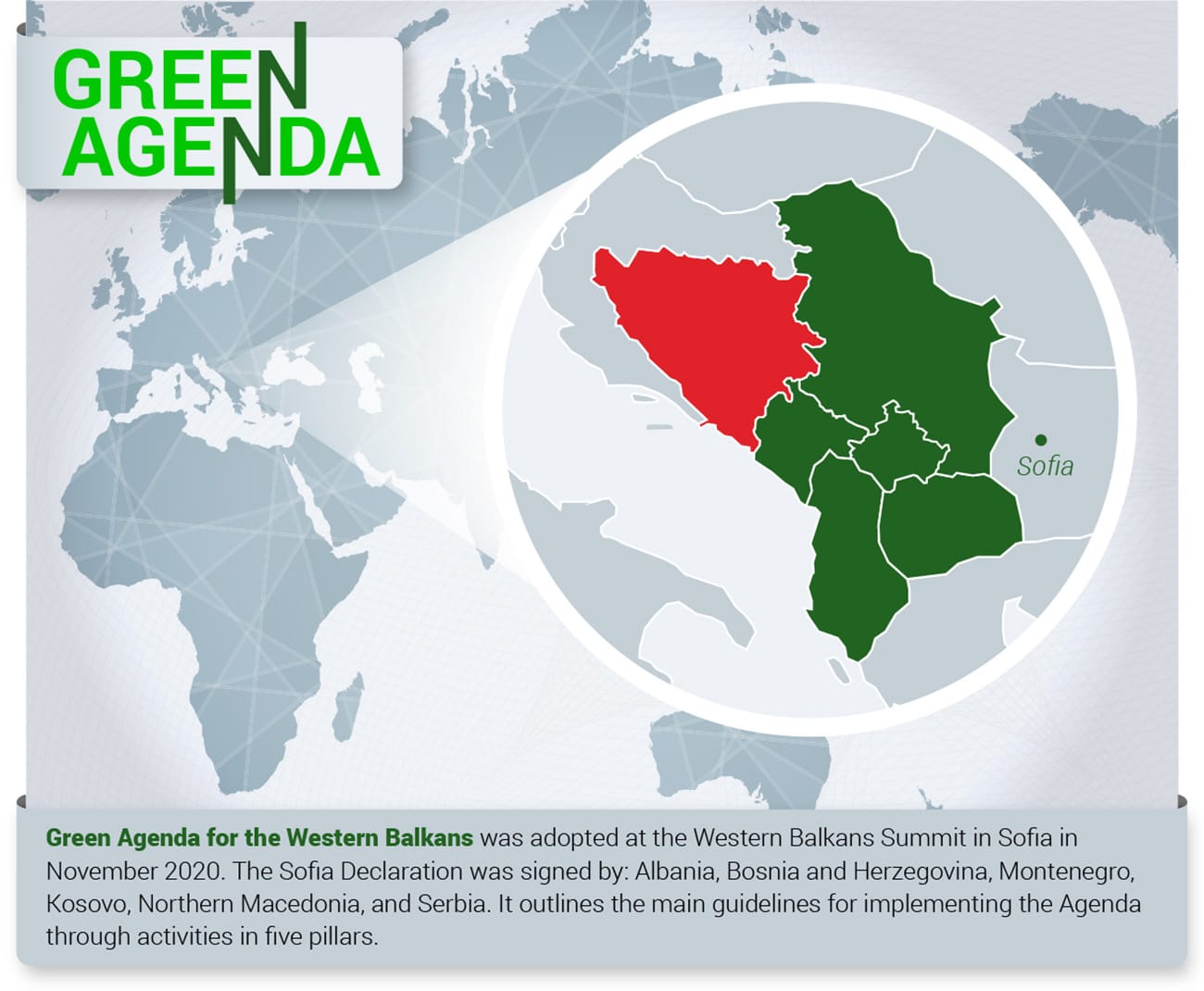
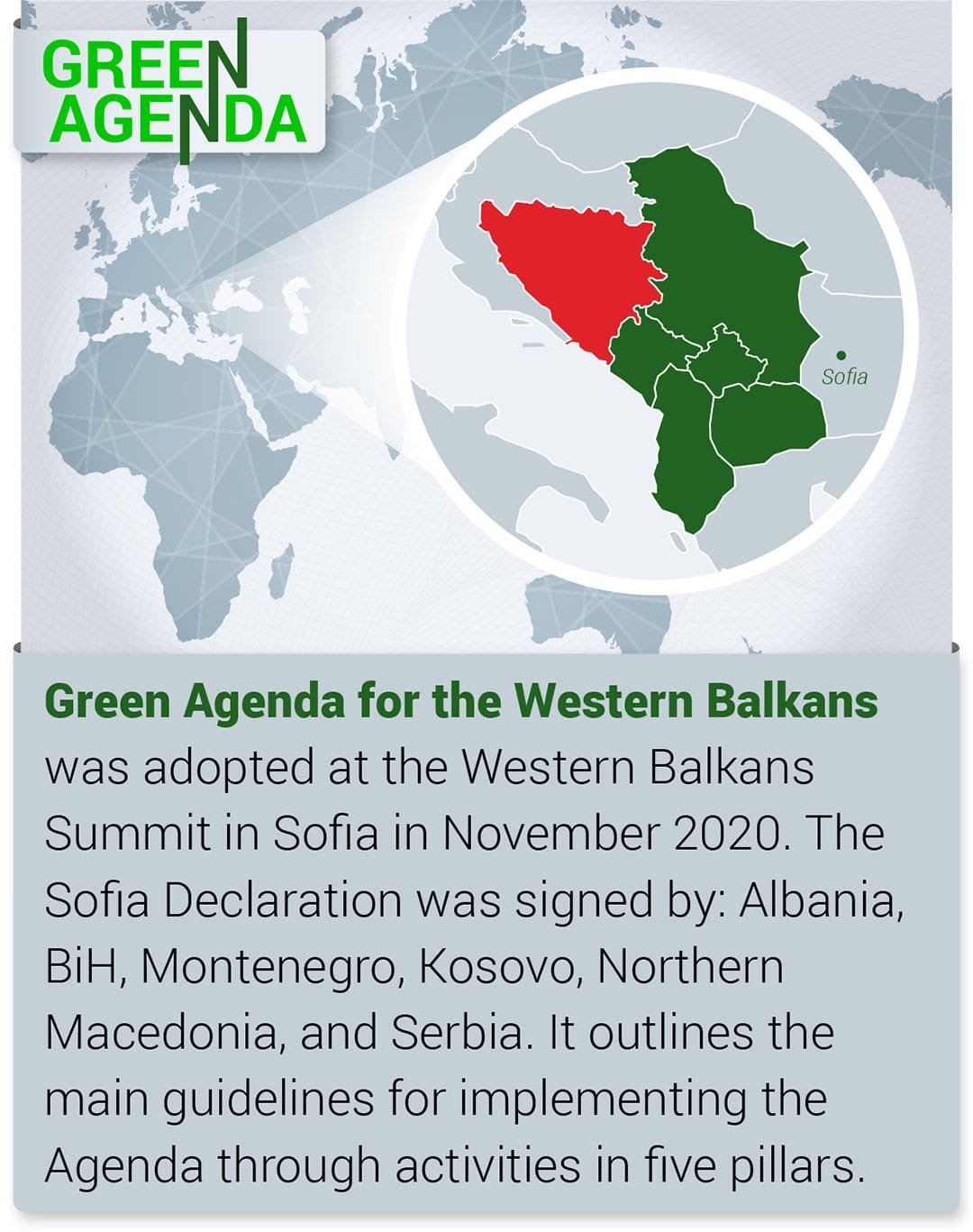


This pillar is about harmonization with the EU system and trade in carbon emissions with different charging instruments by 2024, harmonization with the European Union Climate Law and adoption of the vision of achieving climate neutrality by 2025, and reduction of greenhouse gas emissions by 55% by 2030.
The Western Balkan countries have committed to switching to clean energy and sustainable development, and they will use the transition period to reduce energy imports, develop renewable energy sources, strengthen regional energy security, accelerate economic growth, and address air pollution and health problems.

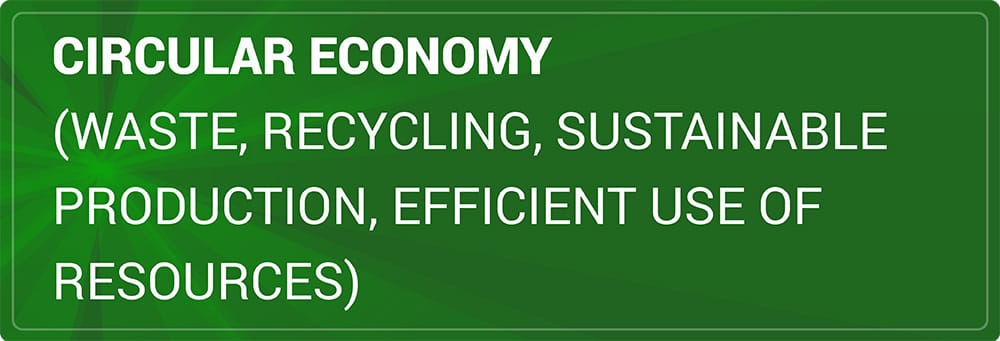
This pillar is focused on activities aimed towards optimal using of resources and minimizing waste. States are committed to efficient waste separation, especially paper, metals, plastics, glass, and bio-waste, which are key to quality recycling. States should raise awareness of minimum waste generation and sustainable consumption and should develop appropriate strategies by 2023.


This pillar is focused on strengthening regional cooperation mechanisms to preserve the biodiversity of the Western Balkan countries and harmonize individual policies with the European Union’s strategy until 2030.


The agenda envisages the reduction of air pollutant emissions through the implementation of the Air Quality Strategy. To ensure water control, it is necessary to improve the infrastructure for monitoring water quality, while prevention of degradation and regeneration of land require better management of forests, the organic carbon in the soil, and reduction of food and waste losses.


Alignment of the agro-food sector with EU standards is necessary to properly meet the food demand. A sustainable system requires the transformation of the primary production and processing sector. Standards on food safety, health, and welfare of plants and animals, waste management, support for organic farming, and reduction of synthetic chemicals in food production should be adopted by 2026.
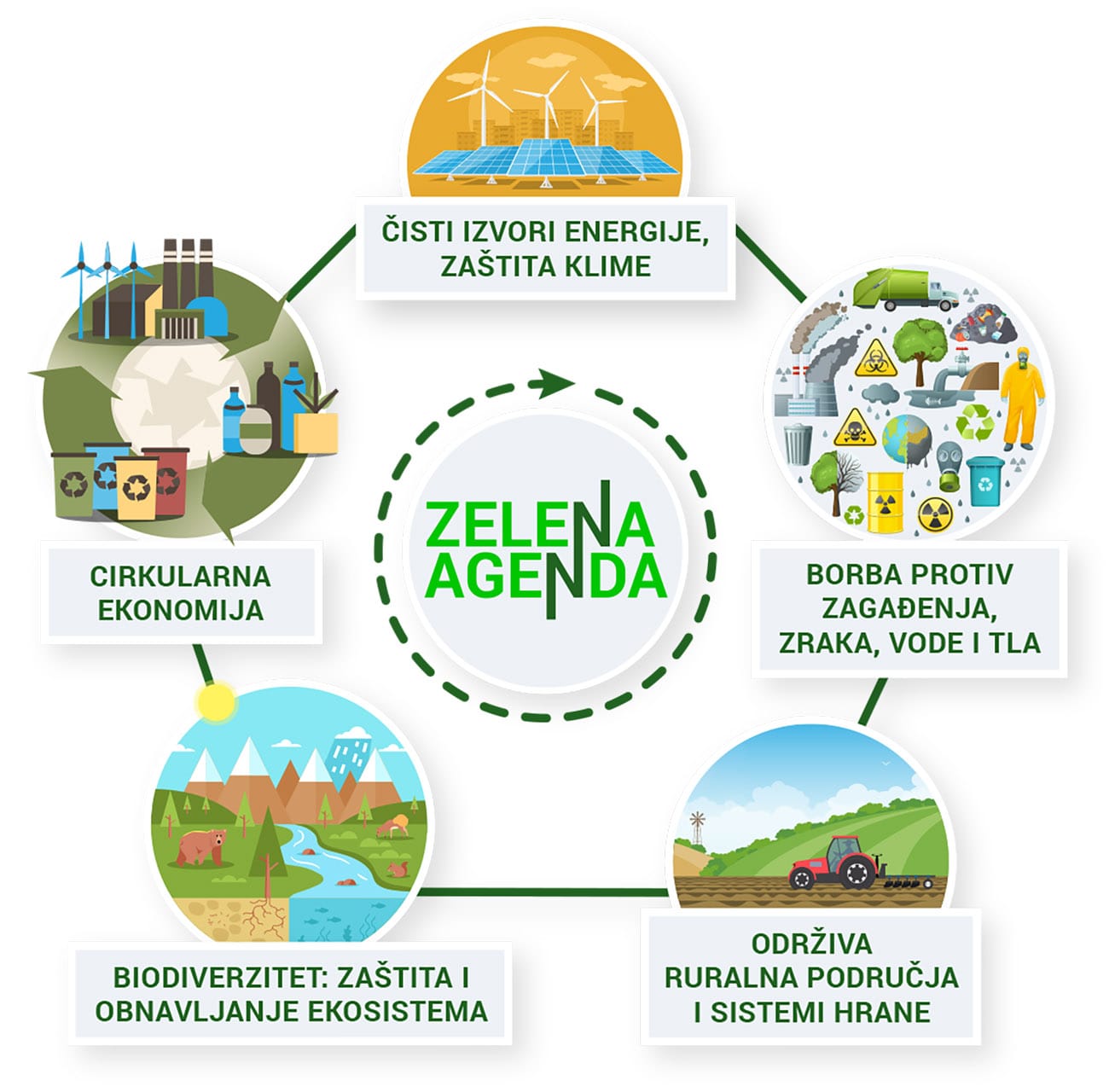
Digitalization will be a key enabler for all five pillars of the Agenda, in line with the concept of the dual green and digital transition. The goals should be achieved through concrete actions determined by the Action Plan, and they will be supported by mechanisms and financial instruments.
ACTION PLAN for the implementation of the Green Agenda covers the period from 2021 to 2030. Its most important parts point to the phasing out of coal use, the collection of greenhouse gas emissions, and the control of environmental pollution.
Funds for these activities are planned for the Western Balkans for the period 2021-2027.
Part of the 9 billion Euros allocated under the Instrument for Pre-Accession Assistance (IPA III) to help align the economic growth of the Western Balkans with the EU will be used to implement the Green Agenda.




















Svojim anonimnim prijavama doprinosite integritetu naše zajednice. Molimo vas da iskoristite ovu formu kako biste sigurno prijavili bilo kakvu sumnju u korupciju ili nezakonitu aktivnost koju primijetite. Vaša hrabrost ključna je za očuvanje naših vrijednosti i promicanje transparentnosti.
By submitting your anonymous reports, you contribute to the integrity of our community. Please use this form to safely report any suspicions of corruption or illegal activities you may observe. Your courage is crucial in upholding our values and promoting transparency.